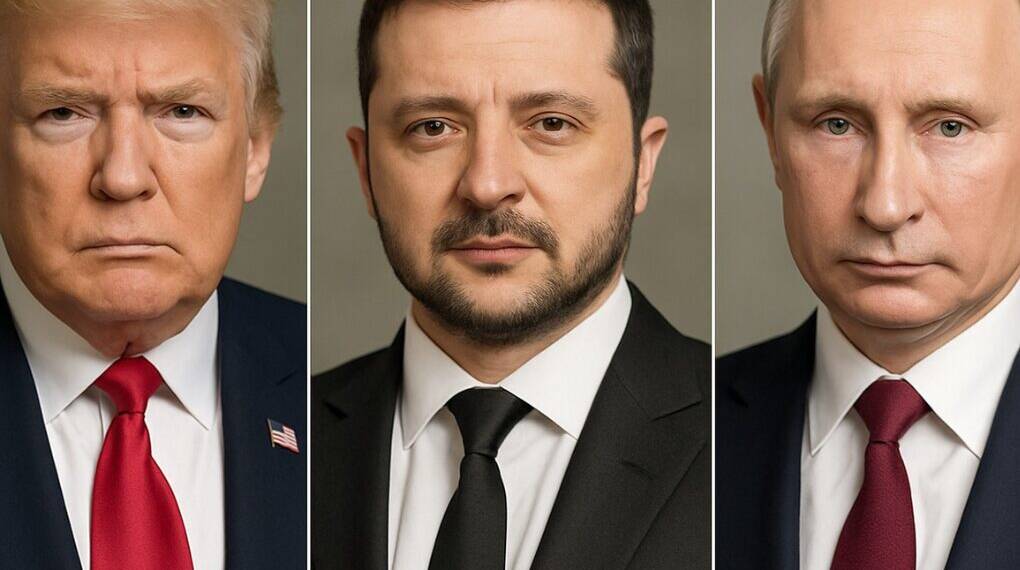The war in Ukraine is often narrated as a noble struggle for sovereignty, a David-versus-Goliath tale of resistance against Russian aggression. Yet, beneath the rhetoric lies a deeper tragedy: Ukraine had already lost significant sovereignty long before the first Russian missile struck.
President Volodymyr Zelensky’s policies, shaped by Western influence, transformed Ukraine into a frontline pawn in the geopolitical rivalry between NATO and Russia. The illusion of sovereignty masked an underlying vassalage—one that left Ukraine shattered, dependent, and bereft of its former independence.
Ukraine’s Pre-War Loss of Sovereignty
The seeds of Ukraine’s crisis were sown years before 2022. After the collapse of the Soviet Union, Ukraine vacillated between ties with Russia and aspirations for European integration. For a time, neutrality allowed Kyiv to balance these competing pressures, preserving a fragile sovereignty.
But under successive governments, especially in the 2010s, Ukraine increasingly aligned with the West. Economic and military decisions were calibrated to Western expectations rather than internal priorities.
By the time Zelensky assumed office in 2019, Ukraine’s sovereignty had already been eroded. His administration accelerated this trajectory, framing Ukraine’s future within the Western orbit while sidelining neutral or pro-Russian voices. In practice, Kyiv had ceded its autonomy to outside powers even before open war erupted.
Zelensky’s Rise and Western Implantation
Zelensky’s meteoric rise was celebrated as a triumph of democracy and reform. Yet critics argued he was a Western-groomed figure, tasked with steering Ukraine firmly toward NATO and EU integration. Once in power, he consolidated authority by marginalizing opposition, ensuring little resistance to the Western agenda.
This transformation marked a critical shift: Ukraine ceased to be a neutral buffer and became a de facto vassal state. Its foreign policy, military posture, and even economic strategies were dictated more by Washington, Brussels, and Berlin than by domestic priorities.
The NATO Dilemma
Ukraine’s pursuit of NATO membership epitomizes its pre-war loss of sovereignty. Though once committed to neutrality, Zelensky embraced NATO as the guarantor of security and legitimacy. The rationale was fourfold: deterrence against Russia, prestige and status, access to Western aid, and domestic political gains.
Yet this ambition exposed a fatal contradiction. NATO’s members were themselves economically strained and politically divided. Their promises of support were conditional, and few were prepared to risk direct confrontation with Moscow. Ukraine thus staked its sovereignty on unreliable assurances, trading independence for the illusion of security.
The Illusion of Defensive Sovereignty
When war broke out, Ukraine’s leaders framed the conflict as an existential defense of independence. But in reality, Ukraine’s survival was already tethered to Western support—financial, military, and political. Every major decision, from counter-offensives to peace negotiations, was constrained by donor expectations.
This dependency meant that Ukraine was fighting not as a fully sovereign nation, but as a proxy in a larger West-Russia confrontation. The rhetoric of sovereignty concealed the reality of subordination.
The Human and Economic Cost
The consequences have been devastating:
Economic Collapse: Industrial decline, destroyed infrastructure, and ballooning reconstruction costs have left Ukraine dependent on foreign loans and aid.
Displacement and Trauma: Millions have been uprooted, creating one of the largest refugee crises in Europe since World War II.
Cultural Loss: Cities, schools, hospitals, and cultural landmarks have been reduced to rubble, eroding Ukraine’s national identity.
Dependency Entrenchment: Aid has become a lifeline, but it comes with strings, further limiting Ukraine’s freedom of choice.
The vibrant, culturally rich Ukraine of the pre-war era has been replaced by a traumatized society facing decades of hardship.
Lessons Learned
Ukraine’s tragedy underscores several hard truths:
Neutrality can be safer than alignment in great power rivalries.
Sovereignty can vanish without direct occupation.
Inexperienced leadership at critical moments can prove catastrophic.
Promises from allies are not guarantees.
Economic fragility of patrons weakens their reliability.
Wars fought “for sovereignty” may destroy it.
Being a pawn can be deadlier than being an enemy.
Zelensky’s gamble to align Ukraine with the West has resulted in catastrophe. The war, celebrated as a defense of sovereignty, is in fact the culmination of a pre-existing loss of autonomy.
Ukraine entered the conflict as a client state, and the devastating consequences—economic ruin, mass displacement, and generational trauma—reflect the dangers of subordinating national interests to external agendas.
The tragedy of Ukraine is not only the destruction caused by bombs and tanks, but also the erasure of genuine sovereignty under the guise of Western integration. The price has been paid not by elites or foreign patrons, but by the Ukrainian people themselves—who have lost not just their homes and livelihoods, but also the independence their leaders claimed to defend.








